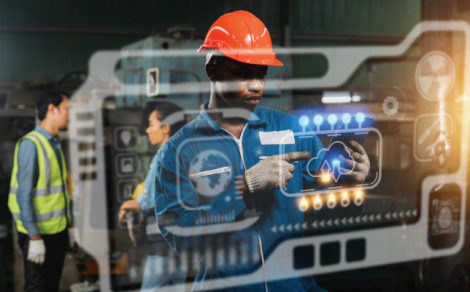Is the industrial metaverse worth writing home about?

Tom Cash, director of industrial parts supplier Foxmere, explains the computational, connectivity, interoperability and regulatory challenges of the metaverse while feeling very enthusiastic about the whole thing.
In July 2023, Siemens invested €500M in a new technology campus in Erlangen, Germany to help develop its vision of the industrial metaverse. The company intends to create a blueprint for the future — a real-time, photorealistic virtual representation of the world, where AI helps to create the next generation of high-tech, flexible and sustainable manufacturing technologies. But is that really all that new?
Haven’t we been talking about, and even using, digital twins, extended and augmented reality, blockchain and virtual commissioning for more than a decade? Maybe so, but what sets Siemens’ initiative apart are the ambitious goals it aims to achieve within the industrial digital realm.
The company wants to leverage AI to pioneer high-tech, flexible and sustainable manufacturing technologies, which go beyond mere duplication of physical systems in the virtual world. Instead, it involves creating a dynamic, intelligent ecosystem that can revolutionise manufacturing processes.
Whether this investment will come to pass remains uncertain, as is the case with many plans. However, one thing for sure is that the companies actively engaged in developing metaverse hardware, software and infrastructure are well aware of the difficulties when transforming traditional industries.
The concept
The metaverse concept has been used in recent years primarily to describe the development of a 3D internet, referring to virtual environments used mostly — so far — for entertainment. It now aims to create precise simulations of industrial equipment, where it’s used as an umbrella term for various existing technologies that can be combined to digitally replicate real world objects and processes.
For example, accurate simulations of factory equipment would allow manufacturing and other industrial firms to optimise operations without disruption, while improving collaboration amongst workers and frontline employee training. As with the consumer vision of a 3D internet, the industrial metaverse concept is a work in progress with extraordinary potential.
Interoperability
According to a new report released by the Manufacturing Leadership Council, the NAM’s digital transformation division, and Deloitte, 92 per cent of manufacturing executives say they are experimenting with or implementing at least one metaverse-related use case.
However, there are concerns about integrating existing technologies and systems when developing the industrial metaverse. Here, data preparation and transformation within complex workflows often present as major hurdles. This comes as no surprise. Companies are already grappling with integrating systems across multiple plants, let alone the advent of industrial metaverse initiatives, which is heightening the demand and complexity of integrating both similar and disparate technologies.
Simply put, for the metaverse to become the next iteration of the internet, it must be interoperable. That is to say, the virtual worlds that constitute the metaverse must be able to freely exchange data, enabling seamless connections between people, processes, data and systems. Picture a high-tech factory using digital twins for not only replicating equipment but for predictive maintenance purposes too. AI could analyse data from the sensors on physical machinery and virtual counterparts, and when AI detects a potential issue, it would automatically schedule maintenance. Sounds pretty cool, doesn’t it?
-
PPMA 2025
23 September, 2025, 9:30 - 25 September, 2025, 16:00
NEC, Birmingham UK -
Advanced Engineering Show 2025
29 October, 2025, 9:00 - 30 October, 2025, 16:00
NEC, Birmingham UK










